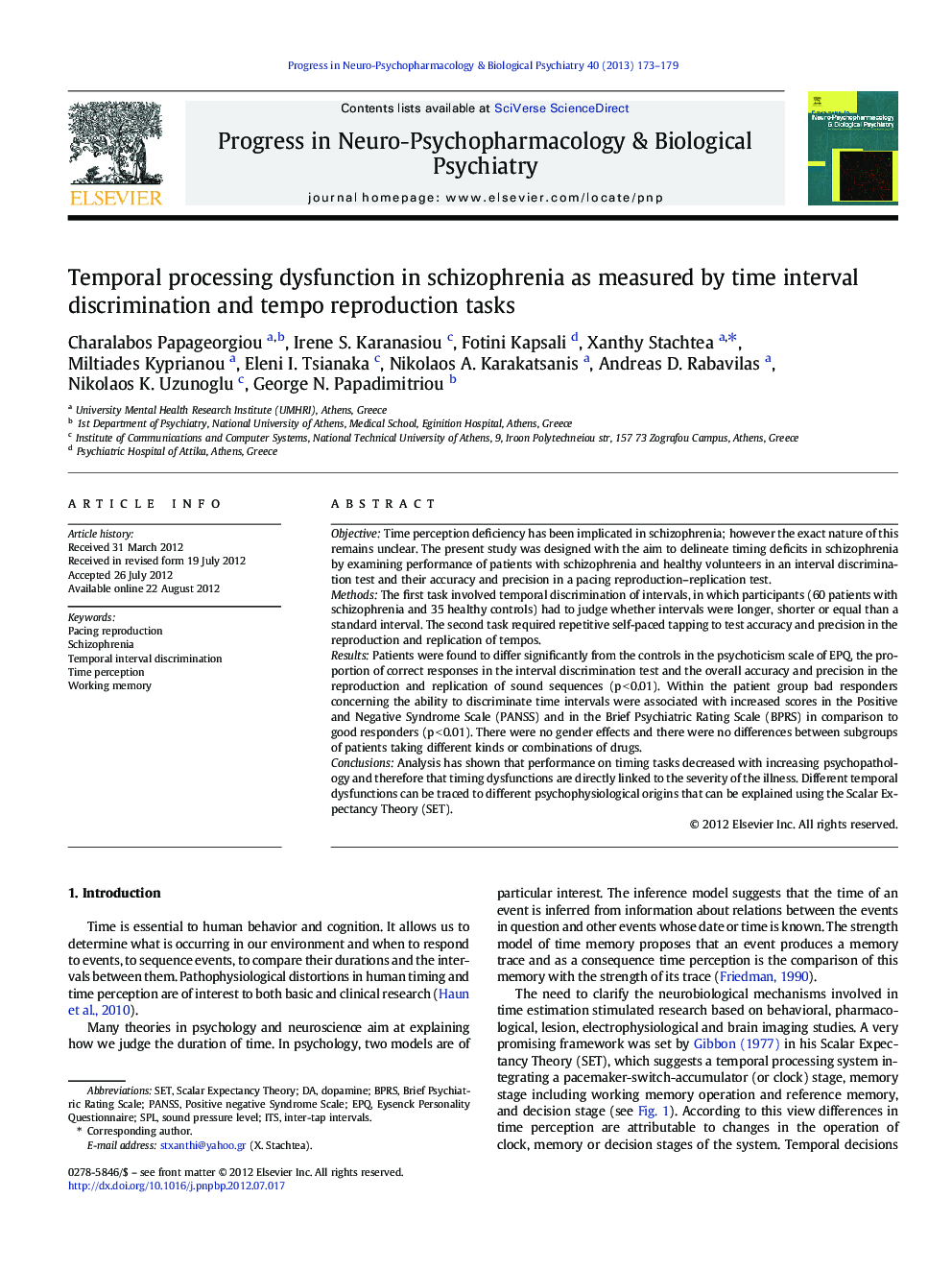| کد مقاله | کد نشریه | سال انتشار | مقاله انگلیسی | نسخه تمام متن |
|---|---|---|---|---|
| 2564963 | 1561054 | 2013 | 7 صفحه PDF | دانلود رایگان |

ObjectiveTime perception deficiency has been implicated in schizophrenia; however the exact nature of this remains unclear. The present study was designed with the aim to delineate timing deficits in schizophrenia by examining performance of patients with schizophrenia and healthy volunteers in an interval discrimination test and their accuracy and precision in a pacing reproduction–replication test.MethodsThe first task involved temporal discrimination of intervals, in which participants (60 patients with schizophrenia and 35 healthy controls) had to judge whether intervals were longer, shorter or equal than a standard interval. The second task required repetitive self-paced tapping to test accuracy and precision in the reproduction and replication of tempos.ResultsPatients were found to differ significantly from the controls in the psychoticism scale of EPQ, the proportion of correct responses in the interval discrimination test and the overall accuracy and precision in the reproduction and replication of sound sequences (p < 0.01). Within the patient group bad responders concerning the ability to discriminate time intervals were associated with increased scores in the Positive and Negative Syndrome Scale (PANSS) and in the Brief Psychiatric Rating Scale (BPRS) in comparison to good responders (p < 0.01). There were no gender effects and there were no differences between subgroups of patients taking different kinds or combinations of drugs.ConclusionsAnalysis has shown that performance on timing tasks decreased with increasing psychopathology and therefore that timing dysfunctions are directly linked to the severity of the illness. Different temporal dysfunctions can be traced to different psychophysiological origins that can be explained using the Scalar Expectancy Theory (SET).
► Timing deficits in schizophrenia studied in interval discrimination and pacing tests
► Performance on timing tasks decreased with increasing psychopathology.
► Temporal dysfunctions can be explained by scalar theory.
► Interval discrimination deficits linked to decision and memory stages dysfunction
► Faster tapping rates and temporal variability linked to internal clock deficits
Journal: Progress in Neuro-Psychopharmacology and Biological Psychiatry - Volume 40, 10 January 2013, Pages 173–179